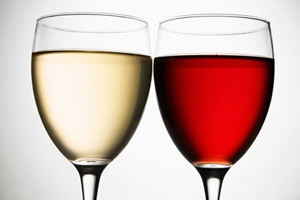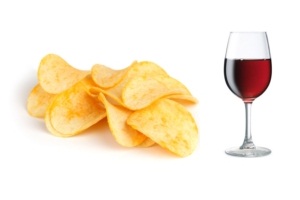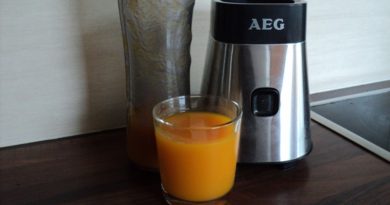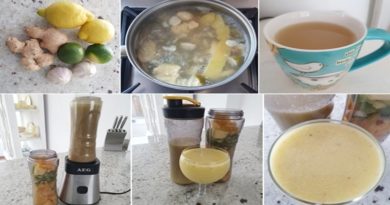Good reasons to reduce your alcohol intake
My Lifestyle Challenge is not just about losing a few excess pounds to look better – the main objective is to improve my overall health and wellbeing.
Losing weight is a good starting point, taking regular exercise is another important adjustment and reducing alcohol intake is another.
There have been so many contradictory studies on alcohol consumption, with some research suggesting that some types of alcohol, red wine, for instance, is good for you and others warning that alcohol can lead to health problems – so what’s the truth?
Firstly the impact of alcohol on our health depends to a large degree on how much of it we consume. According to NHS guidelines women should not drink more than 2-3 units of alcohol a day.
A small 125ml glass of red or white wine contains 1.5 units; a standard 175ml glass contains 2.1 units and a large 250ml glass contains 3 units – so a couple of small glasses or one large glass in a day should be the limit.
Many people forget that wine contains calories, even though it has no nutritional value. It can be all too easy to put on weight just through having a glass or two with your evening meal. A small glass of wine contains between 85 and 95 calories – dry wine has a lower calorific value. A large glass of wine will cost you 150 to 160 calories.

Little wonder then, that a government campaign in 2009 aimed to highlight the fact that the average wine drinker consumes an extra 2000 calories per month – the equivalent of 184 bags of crisps.
So in the first instance, drinking alcohol can hamper any attempts at weight loss. When trying to lose weight the main aim should be to cut down on your overall intake of food and to consume more nutrient-rich foods such as fruits and vegetables.
Consuming alcohol is pretty nonsensical on any diet since you are sacrificing healthy foods rich in vitamins and minerals for alcohol, which has no nutritional value. It should be consumed only occasionally if you are serious about losing weight.
Most of the studies that claim health benefits of drinking wine have focused on red wine and its antioxidant properties. It has been scientifically proven that red wine is rich in antioxidants.
In one study published in the Nutrition Journal in 2007, a group of volunteers were given 400ml of red wine a day for two weeks, whilst another group abstained from alcohol, then switched groups. Blood samples were taken before and after the wine consumption and the findings revealed significant increases in antioxidant status.
More recent studies have pinpointed a specific ingredient in red wine – resveratrol that has beneficial properties to health. A study published this month in the journal Cell Metabolism revealed that resveratrol can induce metabolic changes in obese people that mimic calorie restriction. The research involved a group of obese men taking 150mg supplements a day for 30 days. The catch is that to derive that amount of resveratrol naturally would require drinking two gallons of wine a day!
Whilst these and many other studies do demonstrate that drinking wine can have some health benefits, there are also as many studies warning of the damage that alcohol can do to your health. The NHS warns that excessive consumption of alcohol can lead to liver damage, reduced fertility, high blood pressure, increased risk of many cancers and heart attacks.
But a study published just last week in the Journal of the American Medical Association warned that women who have as few as three alcoholic drinks a week have a moderately increased risk of developing breast cancer. The findings are based on a large study of 106,000 women over a period of 28 years.
It seems clear that drinking alcohol occasionally will neither damage your health nor increase your waistline; but regular drinking definitely poses serious risks to your health. If it’s any consolation, once you have weaned yourself off alcohol, the desire for it decreases significantly and your body may even reject it.

I learned this the hard way last week. I used to be a regular wine tippler before I started my Lifestyle Challenge and could never stop at just one glass with my evening meal, but found myself emptying a bottle over the course of an evening, maybe twice a week.
When I started my Lifestyle Challenge at the end of June, I decided to cut alcohol out of my diet so that I could use more of my reduced calorie allowance on food. Since that time, I have only drunk wine at three family events this year and on three occasions when I dined out.
Last week after passing my interim assessment – the first assessment stage of a doctoral degree I wanted to celebrate, so bought a bottle of my favourite red wine. By the time I had finished my dessert I had drunk two large glasses (around half a bottle) and shortly after felt very sick. I had cramps in my stomach, felt nauseous and eventually threw up. My body’s rejection of alcohol was so extreme that wine even poured out of my nose! (Too much information I know, but it may help some of avoid this experience).
The experience was so adverse that it is one I do not care to repeat again in the future. It seems that my abstention from alcohol has now made me sensitive to too much of it, which is actually a good thing. It means that my limit is one large glass and I cannot physically tolerate more than that.
Another good reason for reducing your alcohol intake is that too much of it can retard hair growth so if you are on a hair growth mission, or your hair is thinning because of age or chemical damage then consuming lots of alcohol will only make it worse.
So if you are serious about weight loss and improving your overall health and you have not already reduced your intake of alcohol – now is the time.















